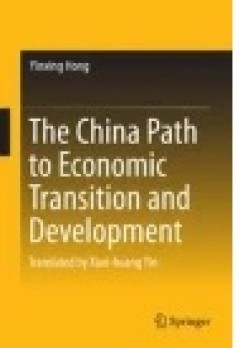Filter by

Extreme Inequalities in Contemporary Capitalism Should We Be Concerned About…
This book explores the mechanisms by which top incomes are achieved through work in today’s advanced economies and asks to what extent current extreme inequalities are compatible with widely held values of social justice. Reflecting on the heterogeneity of the working rich, the authors argue that very high earnings often result not from heightened competition induced by globalization but rath…
- Edition
- -
- ISBN/ISSN
- 978-3-319-28811-6
- Collation
- 13 b/w illustrations
- Series Title
- -
- Call Number
- -

Local Cosmopolitanism: Imagining and (Re-)Making Privileged Places
This book offers a unique perspective on cosmopolitanism, examining the ways it is constructed and reconstructed on the small scale in an ongoing process of matching the local with the global, a process entailing mutual transformation. Based on a wide range of literatures and a series of case studies, it analyzes the different versions and functions of cosmopolitanism and points to the need to…
- Edition
- -
- ISBN/ISSN
- 978-3-319-19030-3
- Collation
- -
- Series Title
- -
- Call Number
- -

Local Content Policies in Resource-rich Countries
This book analyses the role of local content (LC) policy in the economic development of five resource-rich countries: Brazil, Kazakhstan, Norway, Russia and the UK. The authors situate LC policy within a framework of sustainability in the form of industrial diversification and innovation-led growth, and examine how effective LC policies are in facilitating sectoral and economy-wide catching up.…
- Edition
- -
- ISBN/ISSN
- 978-1-137-44786-9
- Collation
- -
- Series Title
- -
- Call Number
- -

Advances in Integrated and Sustainable Supply Chain Planning: Concepts, Metho…
Decision making at the enterprise level often encompass not only production operations and product R&D, but other strategic functions such as financial planning and marketing. With the aim of maximizing growth and a firm’s value, companies often focus on co-ordinating these functional components as well as traditional hierarchical decision levels. Understanding this interplay can enhance ente…
- Edition
- Ed. 1
- ISBN/ISSN
- 978-3-319-10220-7
- Collation
- XX, 309
- Series Title
- -
- Call Number
- 658 LAI a

Advances in Happiness Research: A Comparative Perspective
This edited volume makes a contribution to the literature on happiness research by compiling studies based on cross-national research and from diverse academic disciplines. The book is distinctive in that it contains both theoretical and empirical analyses, investigating relationship between causes of happiness and economic behavior relating to employment, consumption, and saving. Most notably,…
- Edition
- Ed. 1
- ISBN/ISSN
- 978-4-431-55753-1
- Collation
- XX, 344
- Series Title
- Creative Economy
- Call Number
- 330.07 ADV a

Lightweight Landscape: Enhancing Design through Minimal Mass Structures
This book explains how lightweight materials and structures can be deployed in buildings to meet high environmental and aesthetic standards and emphasizes how the concept of lightness in building technology and design dovetails with the desire to enhance landscape. The first part of the book, on lightweight construction, aims to foster the use of membranes within the specific climatic context a…
- Edition
- -
- ISBN/ISSN
- 978-3-319-21665-2
- Collation
- -
- Series Title
- -
- Call Number
- -

Advances in Dynamic and Evolutionary Games: Theory, Applications, and Numeric…
This contributed volume considers recent advances in dynamic games and their applications, based on presentations given at the 16th Symposium of the International Society of Dynamic Games, held July 9-12, 2014, in Amsterdam. Written by experts in their respective disciplines, these papers cover various aspects of dynamic game theory including differential games, evolutionary games, and stochast…
- Edition
- Ed. 1
- ISBN/ISSN
- 978-3-319-28014-1
- Collation
- XVII, 319
- Series Title
- Annals of the International Society of Dynamic Games
- Call Number
- 006.6 ADV a

Exploring the Strategy Space of Negotiating Agents A Framework for Bidding, …
This book reports on an outstanding thesis that has significantly advanced the state-of-the-art in the area of automated negotiation. It gives new practical and theoretical insights into the design and evaluation of automated negotiators. It describes an innovative negotiating agent framework that enables systematic exploration of the space of possible negotiation strategies by recombining diff…
- Edition
- -
- ISBN/ISSN
- 978-3-319-28243-5
- Collation
- 37 b/w illustrations, 21 illustrations in colour
- Series Title
- -
- Call Number
- -

The Chinese Birdcage
This book vividly describes how China’s rise in the early 2000s led to rising profits and declining labor income everywhere, ultimately resulting in the global financial crisis. Under Deng Xiaoping’s policy of ‘reform and opening up’ in the 1980s, China quickly became the world’s factory floor...but powerful political leaders envisioned a world in which the market economy would be tra…
- Edition
- -
- ISBN/ISSN
- 978-1-137-58886-9
- Collation
- XVI, 197
- Series Title
- -
- Call Number
- -

The China Path to Economic Transition and Development
This book by the renowned Chinese scholar Dr. Yinxing Hong provides the reader with a perceptive analysis of what has worked in China’s development model. Over the past 30 years, China has experienced a remarkable economic rise, but it now faces the challenge of switching the drivers of this economic growth, which have proven so successful. The path has not been an easy one, and many challeng…
- Edition
- -
- ISBN/ISSN
- 978-981-287-843-4
- Collation
- XXIII, 234
- Series Title
- -
- Call Number
- -
 Computer Science, Information & General Works
Computer Science, Information & General Works  Philosophy & Psychology
Philosophy & Psychology  Religion
Religion  Social Sciences
Social Sciences  Language
Language  Pure Science
Pure Science  Applied Sciences
Applied Sciences  Art & Recreation
Art & Recreation  Literature
Literature  History & Geography
History & Geography